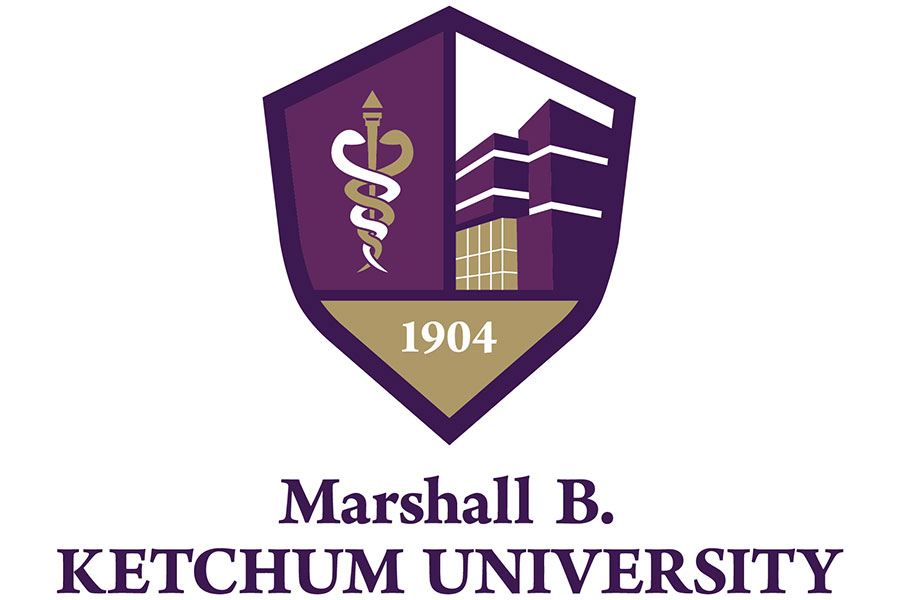
(Editor’s note: INVISION Magazine has partnered with Marshall B. Ketchum University to examine the field of optometry. This column is the first in the continuing monthly series.)
As a long-time optometrist and now educator at Marshall B. Ketchum University, I rarely need to do much to convince my colleagues or my students – the future optometrists – what a wonderful career optometry is. We are all fortunate enough to already understand how rewarding and profitable the profession can be.
However, when some form of objective corroboration is needed to make a case for why a career in optometry is one of the most attractive choices for individuals pursuing a calling in health care, I would present two recent reports. Both place the profession at the top of very credible lists.
There is a Great Need
The first is a report from CNBC that ranks optometry as the second-best job in the U.S. in 2022, according to the employment website Indeed. Among the metrics measured in determining the rankings were growth rate and job openings. Both support optometry’s strong showing.
I am a witness to the rate at which the profession continues to expand in several exciting ways. The type of care an optometrist can offer patients is ever-growing. Similar to many health care professions, optometry has become more specialized as it offers practitioners entire careers in a variety of disciplines within larger fields of practice. The list includes, but is not limited to, low vision, contact lenses, dry eyes, myopia management, vision therapy, and co-management.
Advertisement
With this, there are more opportunities for optometrists to make a positive impact on the future. Especially as the population of the U.S. is aging and there are not enough eye care providers to serve it. At the same time, there are rising openings for optometrists to be a part of the proliferation of community clinics in places underserved by health care providers.
In addition, just as it has in other health care professions, technology continues to extend our capabilities with the increased use of digital therapeutics to help diagnose and treat patients in innovative ways. The expanded use of telehealth is helping reach those who are in situations where distance or transportation is an obstacle.
All these factors have contributed to an evolving health care landscape that will benefit communities on a scale larger than ever before.
There is a Great Reward
The second report is one from U.S. News and World Report that recognizes optometry as one of the top-25 highest-paying jobs by median salary in the U.S. for 2023.
Now, while careers in health care are typically well-paid, I think it’s also true that the majority of health care providers aren’t in it simply for a paycheck. Health care providers are leaders driven by a compassionate desire to help make people well, and I believe the profession of optometry is particularly appealing in this regard.
Helping people improve their eyesight is rewarding on its own. However, the nature of the typical optometry examination gives you more time with the patient, both in a specified visit and over the course of their lives. This allows you to build thriving relationships that are the foundation of a successful practice.
Advertisement
Another reason optometrists make a positive impact on their patients is that they are often the only health care provider a patient may see, so being aware of and able to assist in caring for other medical conditions can greatly improve a patient’s systemic health.
The Best of Both Worlds
One area where optometry enjoys a clear advantage over other health care professions is work-life balance. It is an ideal field for individuals who wish to devote as much time to their families and loved ones as they do to their patients.
This is not only possible in private practice, but in independent practice, group and hospital practice, multidisciplinary settings in community health centers, at the VA, in Indian Health Service (IHS), large retail chains and in an HMO – to name just a few!
I am so confident about making the case for optometry as a top job in health care because I have lived my dream of opening a private practice and performing quality comprehensive eye and vision care in my community.
I have developed life-long friends via the practice. I am now honored every day to pass along what I know as an educator, helping train future optometrists at Marshall B. Ketchum University in Fullerton, California and our clinical training facility, Ketchum Health, in Anaheim, California.
Along with my official role, I can advocate on behalf of the profession on a local, state, and national level. My reach is far and wide, and I truly believe I am making an impact in health care and beyond.
Advertisement
And so can you!
_____
About the author: Mark Nakano, OD, has been the SCCO Associate Dean of Clinics at Marshall B. Ketchum University since March 2016. Before that, Dr. Nakano was the Clinic Director of the University Eye Center at Los Angeles (UECLA) since September 2011.

Mark Nakano, OD, Marshall B Ketchum University
He is a graduate of California State University, Dominguez Hills, received his Doctor of Optometry degree in 1986 from Pacific University College of Optometry and is glaucoma-certified in California.
Dr. Nakano has owned and operated a practice since 1987 – 19 years in Gardena and now in Torrance, California. In 2005, he became the managing partner as he formed an optometric group, the focus of which is ocular disease detection, diagnosis, treatment and management. He still actively participates in the practice.
Dr. Nakano has conducted over 40 clinical trials in contact lenses, solutions, and medications for all the optical pharmaceutical companies. In addition, Dr. Nakano has had experience working with Harbor-UCLA Eye Clinic, a multidisciplinary and educational health care facility, and as a quality assurance auditor for a regional vision plan.